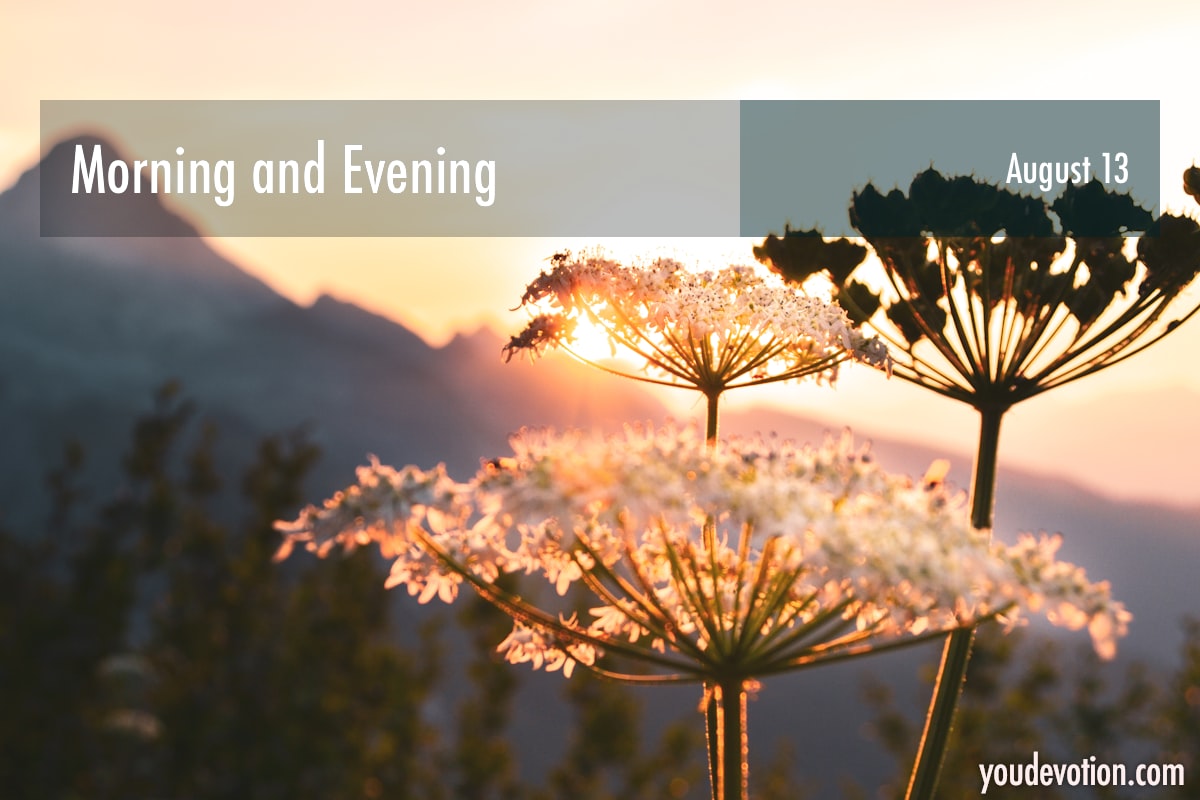
Photo from Unsplash
August 13
Morning
The trees of the LORD have their fill, the cedars of Lebanon that He planted, — Ps 104:16 BSB
The cedars of Lebanon are a perfect symbol of the Christian because they owe their very existence to the Lord. This is true for every believer—they are not planted by human hands or by their own doing but by the hand of God Himself. The divine Spirit plants the seed of life in a heart prepared by His grace. Every true child of God can claim the Lord as the Master Gardener who planted them.
Like the cedars of Lebanon, Christians are not dependent on human hands for sustenance. These trees stand tall on mountain heights, receiving no irrigation from man, yet God supplies their every need. So it is with the believer, who lives by faith and depends entirely on God. They do not rely on the world for their sustenance but trust in the Lord alone. The dew of heaven is their refreshment, and God Himself is their ever-flowing source.
Furthermore, the cedars of Lebanon are not protected by any human force. They stand exposed to the wind and storm, yet they are preserved by God. In the same way, the Christian has no earthly shield against life’s storms—only the covering of God’s eternal wings. God alone guards and preserves His people, even when they stand in the most vulnerable positions. Like the cedar, believers remain full of life, ever green and thriving, even in the winters of life.
Lastly, the strength and majesty of the cedar bring glory to God alone. The Lord is the one who has planted, sustained, and protected them, and so He alone deserves the praise. As the psalmist says, “Praise the Lord, fruitful trees and all cedars.” In the life of the Christian, there is nothing to exalt humanity. All glory belongs to God, who has done it all.
Evening
I will remember My covenant between Me and you and every living creature of every kind. Never again will the waters become a flood to destroy all life. — Gen 9:15 BSB
Notice how the promise is worded. God does not say, "When you look upon the rainbow and remember My covenant, then I will spare the earth." Instead, He places the emphasis on His own memory, not ours. "The rainbow shall be in the cloud, and I will look upon it, that I may remember the everlasting covenant." How comforting this is! It is not my remembering God but His remembering me that is the foundation of my security. It is not my holding fast to the covenant but the covenant holding fast to me. Praise God that all the defenses of salvation rest on divine strength, not on our frail and forgetful hearts!
Even the memory of the covenant is not left in our hands. We might forget, but God will never forget His people, whom He has engraved on the palms of His hands. Just as with Israel in Egypt, the blood was on the doorposts, and God said, "When I see the blood, I will pass over you." He did not say, "When you see the blood," but "When I see it."
My joy and peace come from looking to Jesus, but my salvation is secured because God looks at Jesus. When He sees Christ, our Substitute, He cannot be angry with us for sins that have already been paid for. Our safety does not rest on our remembering the covenant but on God's unchanging faithfulness to His promise. There is no part of salvation that relies on us—it is all of God.
We should indeed strive to remember God's covenant, and through His grace, we will. But our ultimate assurance lies in this: God remembers us. The everlasting covenant stands firm because it is rooted in His memory, not ours.